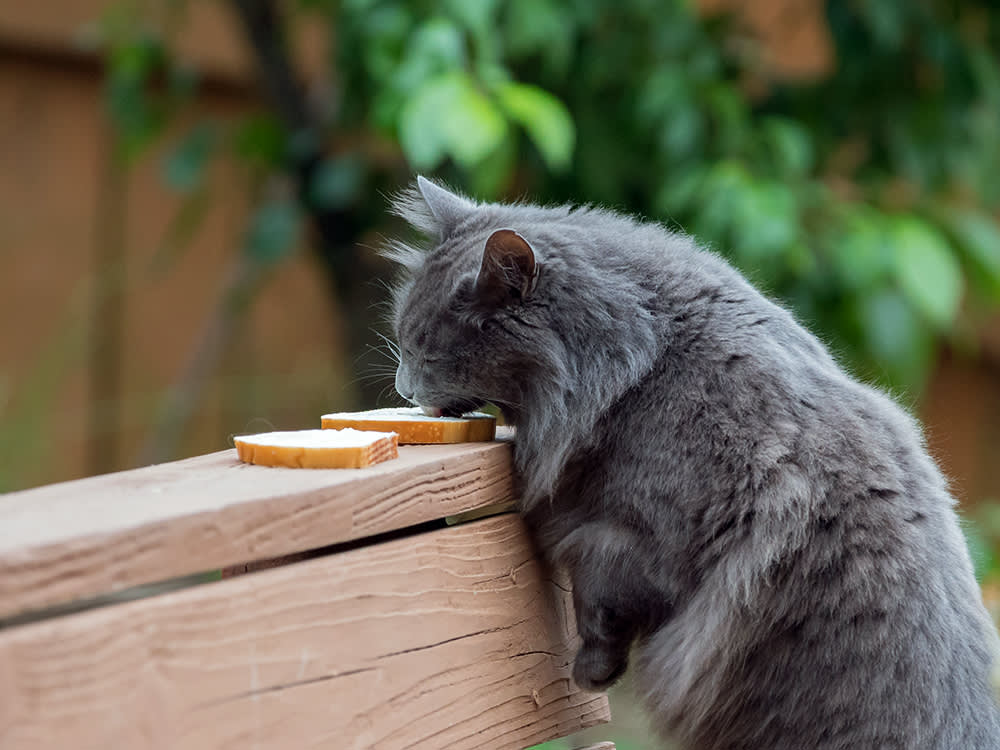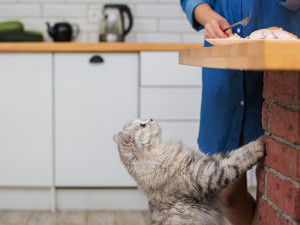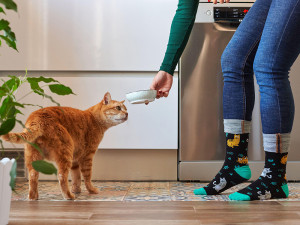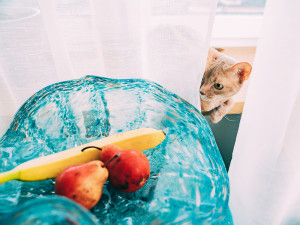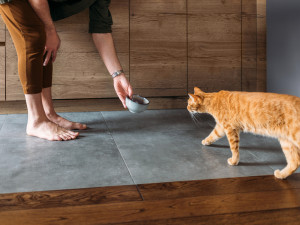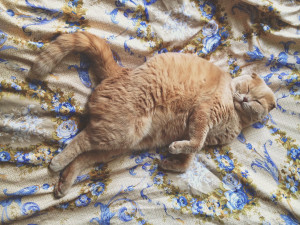Can Cats Eat Bread?
Go ahead and give your carb-loving cat a few bites, but don’t hand over the bread basket
Rest assured, the next time your cat angles for a bite of your tuna sandwich, it’s okay to share a morsel. According to Dr Autumn Vetter, clinical assistant professor at the University of Georgia Pet Health Center, “Cats shouldn’t have a ton of carbohydrates in their diet, but there are some grains in balanced pet food and small amounts of bread is okay.” Bread is high in carbs, which are harder for cats to digest than proteins, but a few crumbs from the kitchen floor won’t cause your cat any harm.
Is it safe for cats to eat bread?
The short answer: yes. Cats can eat a few bites of baked bread, but there are reasons to control portions and limit their consumption. While sourdough and focaccia taste great, breads – and other treats with a high carb content – can also cause cats to pack on the pounds, increasing their risk of health issues ranging from diabetes to arthritis. So, better to go easy on the baked goods.
During digestion, carbs become sugars, which is why Dr Vetter cautions against offering bread to cats with diabetes. It’s also important to steer clear of specialty breads that have ingredients like garlic, onions or chives baked in. These ingredients are toxic to cats and can break down their red blood cells, causing anaemia. Raisins are also toxic for cats so no matter how good your raisin bread smells to them, it’s important not to cut them a slice.
You should also never let your cat eat raw, yeasted bread dough. Dough continues to rise in their gastrointestinal tract and could cause extreme bloating or an obstruction. It also continues fermenting, producing ethanol and carbon dioxide. Your cat may appear disoriented, depressed and unsteady, as the consumption of raw dough causes your cat to “experience the symptoms of drunkenness,” Dr Vetter explains. This type of poisoning, which is caused by alcohol intake, can be fatal.
What to do If your cat eats bread (or raw dough)
It’s not a huge cause for concern if your cat devours a loaf of baked bread. However, you should still watch for signs of stomach upset like vomiting or diarrhoea, which should be short-lived. A cat that eats raw, yeasted dough needs to go to the veterinarian right away. Your vet may induce vomiting or pump their stomach to remove the dough, which could be crucial.
